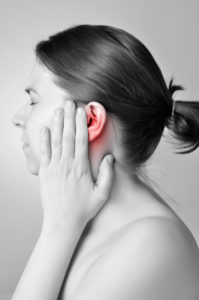An Overview of TMJ


What is TMJ?
TMJ occurs when the temporomandibular joint, located where the lower jaw (mandible) meets the temporal bone, is improperly aligned. The result is a range of symptoms that can vary from person to person. The long-term effects can include permanent damage to the teeth, eventual tooth loss, or permanent damage to the joint itself.
What are the Symptoms of TMJ?
Symptoms of TMJ are varied and can be easily mistaken for symptoms of other issues. Some symptoms include:
- Persistent headaches
- Persistent earache
- Clicking in the jaw joint or in the ears
- Discomfort in the jaw
- Teeth clenching or grinding
How is TMJ Diagnosed?
Your dentist will probably want to rule out any other possible causes of your symptoms, since the same problems could indicate other, more serious issues such as migraines, ear infections, or even cancers. X-rays of the jaw joint can narrow down the diagnosis, as can careful observation of the movement and alignment of your jaw, as well as its range of motion.
What can I expect from TMJ treatment?
Treatment for TMJ depends upon your individual situation, including the root causes of your misalignment. TMJ can occur because of:
- Misaligned teeth
- Habitual bruxism, or teeth grinding
- Malocclusion, or a poorly aligned bite
- A structural problem in the jaw joint
Typical approaches to TMJ treatment include orthodontic treatment like braces, nightguards to prevent you from clenching and grinding your teeth, TENS treatment to relax the jaw muscles, or use of veneers and inlays or onlays to improve your bite. Botox treatment is sometimes used, as well, to prevent the jaw muscles from tensing and spasming, causing damage to the teeth and to the jaw joint. In severe cases, your dentist might recommend surgery to restructure the joint.
To schedule a consultation with our team at Tate Family Dentistry, call us today.